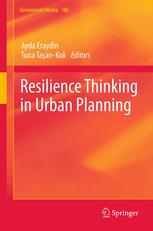

Most ebook files are in PDF format, so you can easily read them using various software such as Foxit Reader or directly on the Google Chrome browser.
Some ebook files are released by publishers in other formats such as .awz, .mobi, .epub, .fb2, etc. You may need to install specific software to read these formats on mobile/PC, such as Calibre.
Please read the tutorial at this link: https://ebookbell.com/faq
We offer FREE conversion to the popular formats you request; however, this may take some time. Therefore, right after payment, please email us, and we will try to provide the service as quickly as possible.
For some exceptional file formats or broken links (if any), please refrain from opening any disputes. Instead, email us first, and we will try to assist within a maximum of 6 hours.
EbookBell Team

5.0
38 reviewsThere is consensus in literature that urban areas have become increasingly vulnerable to the outcomes of economic restructuring under the neoliberal political economic ideology. The increased frequency and widening diversity of problems offer evidence that the socio-economic and spatial policies, planning and practices introduced under the neoliberal agenda can no longer be sustained. As this shortfall was becoming more evident among urban policymakers, planners, and researchers in different parts of the world, a group of discontent researchers began searching for new approaches to addressing the increasing vulnerabilities of urban systems in the wake of growing socio-economic and ecological problems. This book is the joint effort of those who have long felt that contemporary planning systems and policies are inadequate in preparing cities for the future in an increasingly neoliberalising world. It argues that “resilience thinking” can form the basis of an alternative approach to planning. Drawing upon case studies from five cities in Europe, namely Lisbon, Porto, Istanbul, Stockholm, and Rotterdam, the book makes an exploration of the resilience perspective, raising a number of theoretical debates, and suggesting a new methodological approach based on empirical evidence. This book provides insights for intellectuals exploring alternative perspectives and principles of a new planning approach.